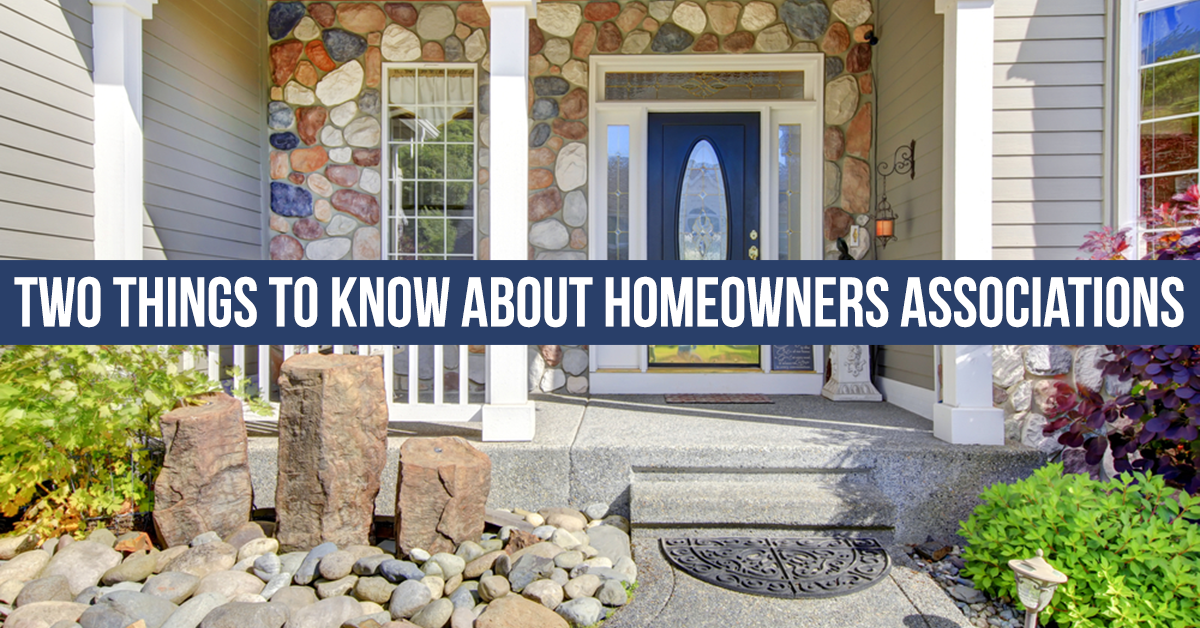Two Things You Need to Know About Homeowners Associations
Owning a home isn’t always a happily-ever-after story. On any given day, you might deal with a leaky roof, a weedy lawn or a bad neighbor. Homeowners associations can help with these inconveniences.
HOAs are governing bodies found within common-interest communities, such as planned or gated neighborhoods and apartment or condominium buildings. They’re run and funded by residents, and have boards of directors that organize regular meetings, establish and maintain budgets, and enforce rules and regulations.
When they work well, HOAs can increase property values by ensuring that their communities stay visually appealing — no rusting Oldsmobiles on front lawns, for example. When they don’t work well, whether because of high fees or poor management, they can make owning a home a bureaucratic pain.
To decide whether you should buy a home in a neighborhood with an HOA, keep these two factors in mind.
You’ll have to pay fees
HOA members are required to pay monthly, quarterly or yearly dues. These fees pay for the installation and upkeep of community common areas, including walkways, parks, lighting, elevators, pools and clubhouses.
Fees vary depending on living situations. A resident of a New York high-rise with a movie theater and a gym might pay higher fees than a resident of a tract house in Portland, Oregon. And owners of a two-bedroom condo will pay more than owners of a one-bedroom.
Based on a community’s maintenance needs and number of residents, its HOA can raise its fees. And if there isn’t enough money in a reserve fund, homeowners might be charged a special assessment — sometimes without a majority vote, depending on how the HOA is run.
HOA boards can also take action against those who don’t pay, from issuing a warning to putting a lien on the home or forcing the owner to foreclosure.
Despite their ability to collect dues, 70% of HOAs are underfunded, according to the National Association of Realtors. Keep this in mind when you’re looking at properties. You might want to ask your real estate agent for a copy of the HOA’s most recent financial report.
Before you buy a home in a neighborhood with an HOA, find out:
- How much the fees cost.
- How often fees are due.
- What fees cover.
- If there’s a reserve fund for emergencies or special projects.
Check in with yourself, too: Are you going to use the amenities that the fees cover? Do the fees fit your budget?
You’ll have to follow the rules
HOA rules are known as covenants, conditions and restrictions. Always obtain an HOA’s CC&Rs before making any homebuying decisions.
When it comes to houses, most HOA rules center on exteriors. For example, members might be required to keep their lawns green, even in a drought. For apartment or condominium owners, they might dictate the types of pets residents are allowed to have or whether they can smoke inside.
You might welcome these rules if you’re concerned about noisy or sloppy neighbors. But if you want to install solar panels, paint your front door neon pink or throw late-night parties, you might run into trouble with your HOA.
And if you don’t follow the rules — say, by adopting a Great Dane when residents are limited to dogs 50 pounds or smaller — the HOA will request that you reverse your actions. Further repercussions could include fines and even a lawsuit.
Before you buy a home in a neighborhood with an HOA, find out:
- The rules.
- How the rules are implemented.
- What happens when rules aren’t followed.
And ask yourself: Are you the type of person who can abide by these rules?
You can also ask your real estate agent whether you can sit in on an HOA meeting or whether the minutes are available. This will give you a sense of the community dynamics. Successful HOAs are democratic, with board members acting in the best interests of residents.
There are going to be rules to follow and bills to pay no matter where you live. Living somewhere with an HOA — especially one that works well — essentially gives you a home caretaker and security provider all in one. More than 20% of the U.S. population lives in some type of common-interest community, and more than half of them are part of an HOA, according to the Community Associations Institute.
But they’re not for everyone. When you’re looking to buy a home, get more information about HOAs from your real estate agent — and ask yourself whether you can live happily ever after with or without one.
This article originally appeared on NerdWallet.


